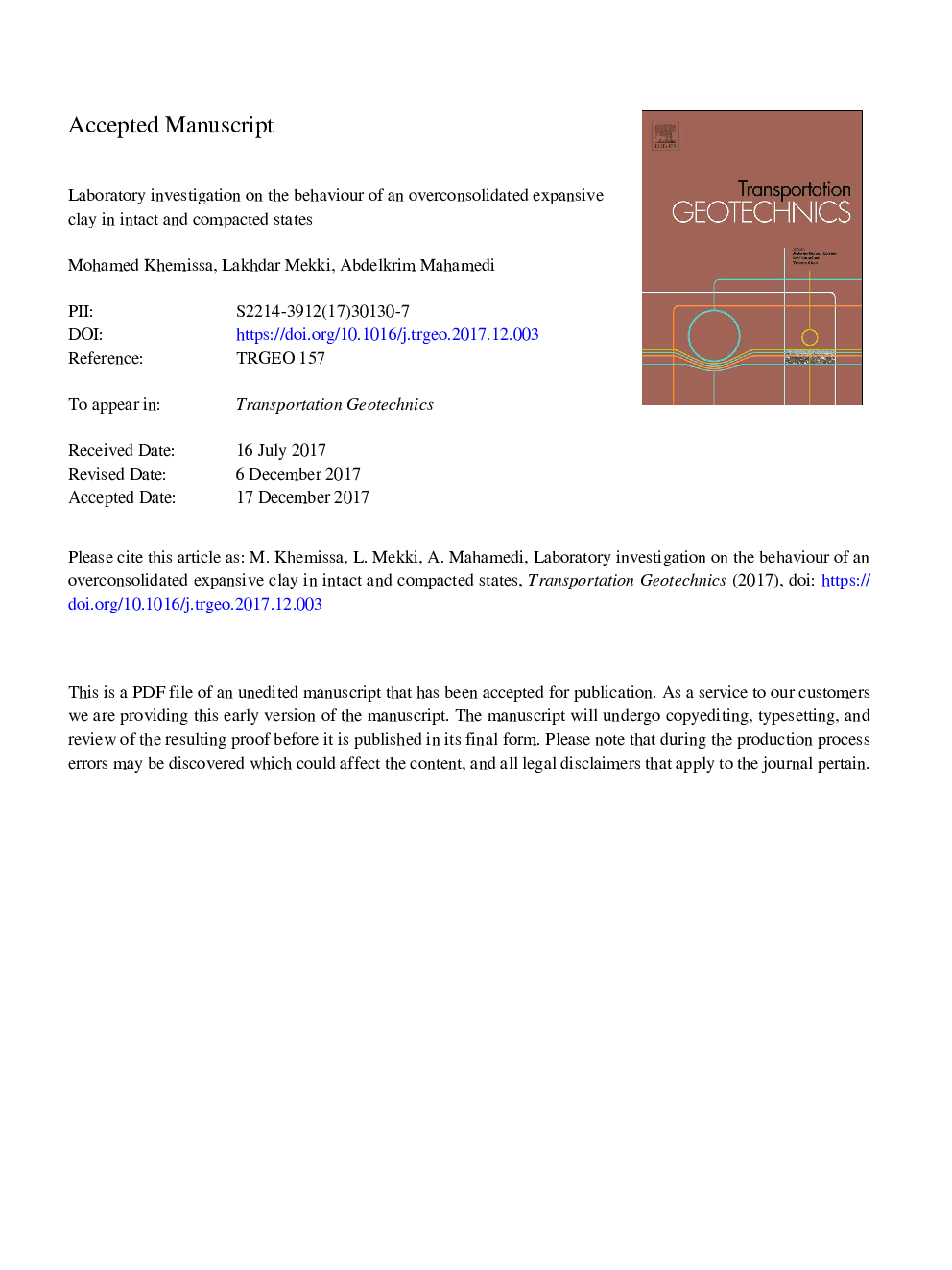| Article ID | Journal | Published Year | Pages | File Type |
|---|---|---|---|---|
| 6779530 | Transportation Geotechnics | 2018 | 31 Pages |
Abstract
Natural climatic phenomena and human activity frequently cause disorders in the masses of fine-grained soils characterized by very significant volume variation as soon as the conditions of their equilibrium are modified. A better description of the behaviour of fine-grained soils can be seen with respect to drying-wetting cycles. This paper presents a series of laboratory test results obtained on a heavily overconsolidated expansive clay, for which significant damages frequently appear in road and motorway infrastructures, in urban public utilities, as well as in civil and industrial low-rise structures. The effects of compaction and drying-wetting cycles on the mechanical parameters of this clay are analyzed to establish a predictive model of the soil movement following the in-situ water table variation. Comparative analysis between the deformability and strength characteristics of the clay in intact and compacted states are then presented. Tests results show that the values of the geotechnical parameters derived from these tests are depending on some experimental aspects such as the compaction energy, drying time, initial deformability and soil saturation. In all cases, the behaviour of intact and compacted clay samples is governed by the same laws of compressibility and consolidation, shrinkage and swelling as well as shear and failure.
Keywords
Related Topics
Physical Sciences and Engineering
Earth and Planetary Sciences
Geotechnical Engineering and Engineering Geology
Authors
Mohamed Khemissa, Lakhdar Mekki, Abdelkrim Mahamedi,
